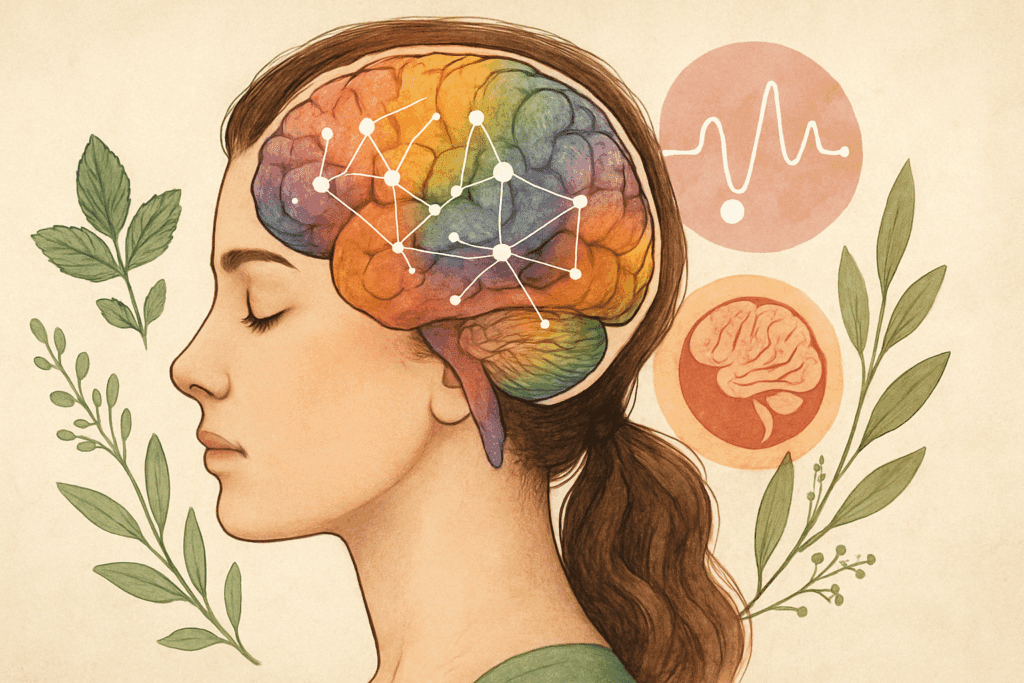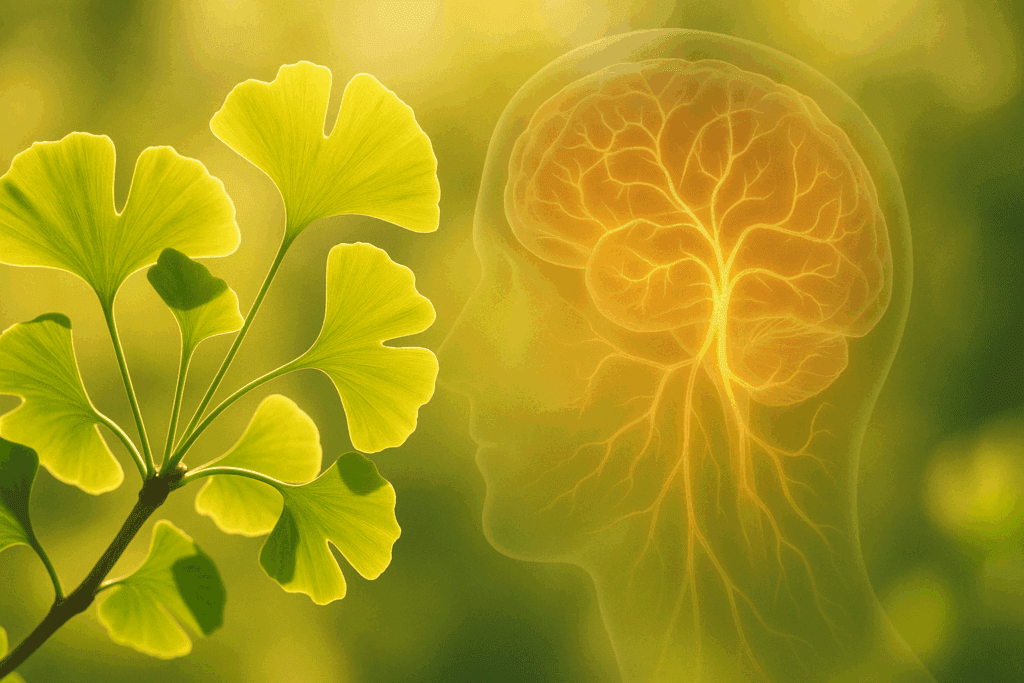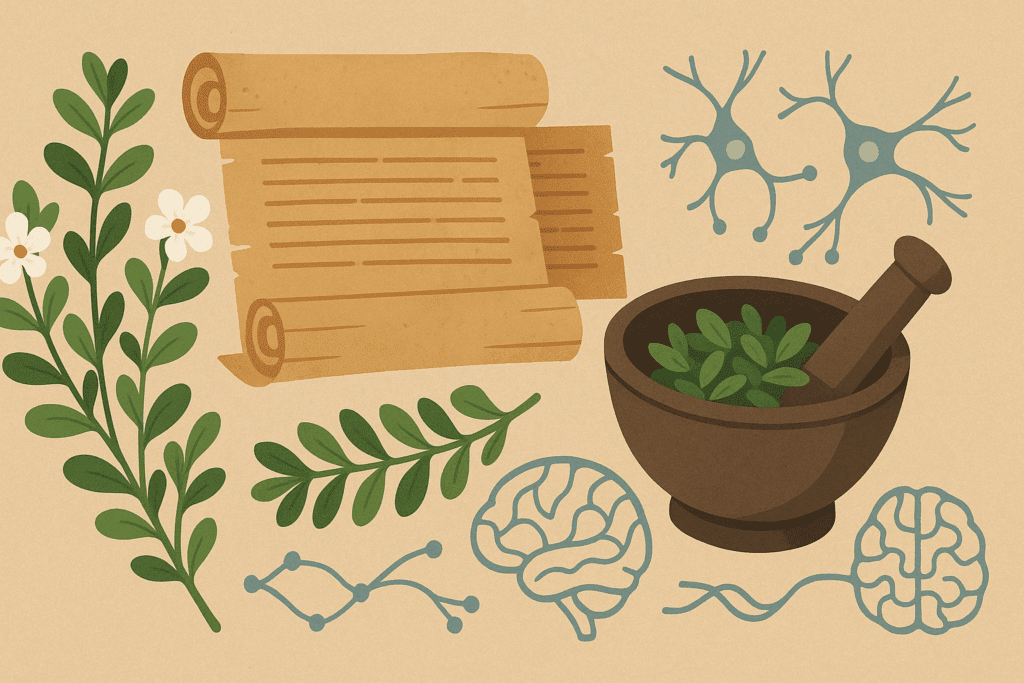Introduction: Natural Solutions for Focus and Cognitive Clarity
In today’s fast-paced world, many individuals seek effective ways to enhance focus, cognitive clarity, and emotional balance. Attention-Deficit/Hyperactivity Disorder (ADHD) is often associated with difficulties in concentration, impulse control, and executive functioning. Although conventional treatments, such as prescription medications, remain the standard approach, a growing interest has emerged in exploring natural remedies. Among these, herbs for ADHD have captured significant attention, particularly among women who often present unique challenges and manifestations of the condition. This article explores the best herbs for ADHD and provides a comprehensive, evidence-based overview of natural options for focus, including top selections tailored specifically for women. Throughout this discussion, we also delve into related topics of circulation health, utilizing key insights about vitamins for blood circulation in legs and natural ways to enhance blood flow, which are critical for optimizing brain and body function.
You may also like: Where to Buy Bacopa Monnieri: How to Find Quality Supplements for Cognitive and Memory Support
Understanding ADHD and the Need for Natural Interventions
ADHD is a neurodevelopmental disorder traditionally diagnosed in childhood but increasingly recognized in adults, especially women, whose symptoms may differ from the classic hyperactive presentations seen in men. Women with ADHD are more likely to struggle with inattentiveness, disorganization, and emotional dysregulation. These challenges often intersect with hormonal shifts throughout life, making effective management even more crucial. Many individuals seek alternatives to stimulant medications due to concerns about side effects, dependency, or personal preferences for holistic wellness approaches. As such, the exploration of herbs for ADHD women and general natural interventions has gained momentum.
Herbs and plant-based remedies offer a promising path because they often provide a synergistic range of phytochemicals that may support neurotransmitter balance, reduce inflammation, and improve blood flow to the brain. Effective circulation is essential, as oxygen and nutrient delivery via the bloodstream directly impacts cognitive performance. Thus, understanding how to improve circulation naturally becomes integral to supporting brain health alongside any targeted herbal interventions.

Key Mechanisms: How Herbs May Support Focus and Cognitive Health
Many herbs traditionally used for cognitive enhancement work through multiple biological mechanisms. Some may enhance dopamine and norepinephrine pathways, similar to pharmaceutical ADHD treatments, but without the intense stimulation. Others exert anti-inflammatory effects, reducing oxidative stress that can impair neuronal function. Additionally, several herbs improve microcirculation, ensuring that brain tissues receive adequate oxygenation and nutrient support. This connection highlights the importance of exploring vitamins for blood circulation and how blood flow supplements may contribute to comprehensive cognitive support.
Improving blood circulation is not just a matter of enhancing physical stamina; it profoundly influences mental agility, emotional resilience, and energy levels. When seeking the best herbs for ADHD, it is valuable to consider those that also act as circulation booster supplements or work synergistically with vitamins for better blood circulation. By optimizing both neural chemistry and vascular health, a more holistic approach to managing ADHD symptoms emerges.
Top Herbal Options for ADHD: Evidence-Based Insights
Ginkgo Biloba: A Circulation-Boosting Cognitive Enhancer
Ginkgo biloba remains one of the most well-researched natural agents for cognitive function and focus enhancement. Known for its ability to improve blood flow to the brain, Ginkgo works by dilating blood vessels and reducing blood viscosity, effectively serving as one of the best supplements for blood flow. This mechanism aligns with broader health strategies emphasizing how to increase blood circulation naturally.
Research indicates that Ginkgo biloba may enhance working memory, executive function, and sustained attention—critical areas often impaired in ADHD. For women, who may experience cyclical variations in cognitive function due to hormonal changes, Ginkgo’s ability to stabilize cerebral blood flow can be particularly beneficial. When combined with a focus on vitamins to improve circulation, Ginkgo creates a strong foundation for cognitive health. As one considers how to boost circulation naturally, Ginkgo biloba stands out as a premier botanical choice.

Bacopa Monnieri: Ancient Wisdom Meets Modern Neuroscience
Bacopa monnieri, an herb deeply rooted in Ayurvedic medicine, has gained modern scientific validation for its nootropic properties. Known to enhance synaptic communication, Bacopa has shown promise in improving attention, processing speed, and memory consolidation. Its adaptogenic properties also make it valuable for mitigating stress, which often exacerbates ADHD symptoms.
From a physiological perspective, Bacopa supports microvascular integrity and promotes better blood circulation to neuronal tissues. Integrating Bacopa with circulation-focused strategies—such as ensuring an adequate intake of vitamins for blood flow and exploring what is a good supplement for blood circulation—can amplify its cognitive benefits. Women, in particular, may find Bacopa useful during phases of heightened emotional vulnerability, as it aids in balancing neurotransmitter systems affected by hormonal flux.
Rhodiola Rosea: The Resilience Root
Rhodiola rosea is an adaptogen renowned for its ability to enhance mental stamina, reduce fatigue, and sharpen focus. Its effects on the hypothalamic-pituitary-adrenal (HPA) axis make it particularly useful for individuals whose ADHD symptoms worsen under stress. Rhodiola enhances cerebral blood flow while modulating serotonin and dopamine levels, addressing both the neurological and vascular components crucial for attention regulation.
Incorporating Rhodiola alongside vitamins for better blood circulation strengthens overall vascular health. Individuals exploring how to boost blood circulation or seeking supplements to help circulation naturally may find Rhodiola a compelling addition to their wellness toolkit. Its relevance for women extends to supporting energy and resilience during menstruation, perimenopause, and other hormonally sensitive periods.

Lion’s Mane Mushroom: Neurogenesis and Beyond
Lion’s Mane mushroom (Hericium erinaceus) has emerged as a powerful nootropic agent capable of stimulating nerve growth factor (NGF) production, promoting neuroplasticity and cognitive renewal. For individuals with ADHD, Lion’s Mane may offer profound support for executive function and memory recall.
Its antioxidant and anti-inflammatory effects also contribute to vascular health, linking it indirectly to strategies focused on how to improve circulation. For those wondering how to make blood flow more efficiently to the brain, Lion’s Mane offers indirect yet potent support. Combining it with blood circulation supplements and vitamins that help blood flow creates a layered, multifaceted approach to cognitive and circulatory optimization.
Gotu Kola: The Herb of Longevity and Mental Clarity
Gotu kola (Centella asiatica) is a traditional herb used extensively in both Ayurvedic and Traditional Chinese Medicine systems for promoting mental clarity, wound healing, and vascular health. Modern studies have demonstrated that Gotu kola can improve blood vessel function, enhance memory, and reduce anxiety—issues intimately connected with ADHD.
Gotu kola is often recommended as part of circulation booster supplements due to its ability to strengthen capillaries and improve venous return. As women are at increased risk for venous insufficiency, especially during pregnancy or hormonal transitions, incorporating Gotu kola alongside vitamins to boost circulation presents an elegant solution to multifaceted health goals. This herb exemplifies how to increase blood flow naturally while simultaneously supporting cognitive performance.

Frequently Asked Questions: Natural Herbs, Circulation, and Cognitive Focus
1. How can improving circulation support cognitive function in ADHD management?
Enhancing blood flow to the brain is critical for delivering oxygen and nutrients that fuel focus, memory, and emotional regulation. Individuals exploring how to improve circulation often notice that better blood flow enhances mental clarity and stamina, which are frequently compromised in ADHD. Blood circulation supplements work synergistically with nootropic herbs by ensuring that active compounds reach target areas more efficiently. When looking at how to increase blood flow for cognitive purposes, combining vitamins for blood circulation in legs with herbs that support mental clarity can create a more holistic wellness plan. Improved vascular health isn’t just about the body—it’s also about ensuring that the brain operates at its highest potential, especially for those managing attention challenges.
2. Are there specific vitamins that women with ADHD should prioritize for better circulation?
Yes, women with ADHD can benefit greatly from focusing on vitamins for blood circulation, particularly during hormonal transitions such as menstruation, pregnancy, or menopause. Vitamins such as B-complex, C, and E are known to support vascular integrity and blood flow. These nutrients work alongside circulation booster supplements to address how to make blood flow more efficiently throughout the body and brain. Additionally, focusing on vitamins to boost circulation naturally helps minimize cognitive “fog” often exacerbated by hormonal changes. For women seeking what vitamins help blood flow while managing ADHD symptoms, a strategic combination of nutrient-dense foods and supplementation can provide essential support.
3. Can blood flow supplements enhance the effectiveness of natural ADHD herbs?
Absolutely. Blood flow supplements improve nutrient delivery by enhancing vascular flexibility and reducing resistance within arteries and capillaries. Herbs like Bacopa monnieri or Ginkgo biloba work best when combined with strategies focused on how to boost blood circulation. For optimal results, integrating best supplements for blood flow ensures that active botanical compounds reach the brain efficiently, maximizing cognitive benefits. Understanding how to increase blood circulation naturally strengthens the therapeutic effect of many ADHD-supportive herbs. For individuals wondering what is a good supplement for blood circulation, combining herbs with circulation-focused nutrients offers a comprehensive strategy.
4. How do circulation booster supplements differ from general cardiovascular supplements?
Circulation booster supplements are designed specifically to target microvascular health, ensuring blood reaches smaller vessels, including those in the brain and extremities. General cardiovascular supplements often focus broadly on heart muscle strength or cholesterol levels. If you are seeking to directly support how to boost circulation naturally, products categorized as blood circulation supplements are a better match than broad cardiac health supplements. These targeted formulas often include what vitamins are good for blood circulation, such as niacin or bioflavonoids, along with specialized botanicals. Thus, anyone focusing on how to increase blood flow for mental sharpness should prioritize circulation-boosting formulations rather than only heart-focused blends.
5. What foods increase blood flow for men, and do they benefit cognitive function too?
Foods like beets, pomegranates, and fatty fish are powerful allies for men looking at what foods increase blood flow for men, but they also enhance mental acuity. These foods are rich in nitrates, omega-3 fatty acids, and antioxidants that not only support physical endurance but also cognitive resilience. By incorporating these options alongside vitamins for blood circulation in legs, men can experience improvements in both athletic and executive function. Supplements to help circulation, when paired with a strategic diet, amplify these benefits. Thus, focusing on foods that enhance how to increase blood circulation naturally offers dual advantages for body and brain vitality.
6. What is the best supplement for poor circulation if you also want to support ADHD management?
When addressing poor circulation while managing ADHD, Ginkgo biloba emerges as one of the best supplements for blood flow with cognitive benefits. Ginkgo is clinically validated for enhancing cerebral perfusion and boosting neurotransmitter availability. It works well alongside other blood circulation supplements and nootropic herbs. Additionally, using vitamins for blood circulation, such as vitamin C and bioavailable iron, helps maintain optimal blood quality and vessel health. Those wondering what is the best supplement for poor circulation should look for options that integrate how to boost circulation naturally while also promoting mental clarity and focus.
7. How do you increase circulation effectively through lifestyle changes alone?
Improving circulation isn’t solely reliant on supplementation; lifestyle interventions play a crucial role. Regular movement, such as brisk walking or stretching, naturally stimulates how to make blood flow more effectively throughout the body. Additionally, cold showers, dry brushing, and elevation techniques enhance venous return. Integrating a diet rich in vitamins to improve circulation, such as leafy greens and citrus fruits, further reinforces these efforts. For those aiming for holistic strategies around how to boost circulation naturally, lifestyle, nutrition, and targeted supplementation form an inseparable triad.
8. Are vitamins for blood circulation in legs important for brain health as well?
Yes, absolutely. While the phrase “vitamins for blood circulation in legs” might suggest a focus on peripheral health, maintaining optimal leg circulation mirrors and supports overall vascular integrity. Healthy veins and arteries throughout the body ensure consistent and efficient nutrient delivery to the brain as well. Thus, choosing vitamins for better blood circulation provides systemic benefits, making it easier to maintain mental stamina and reduce symptoms of brain fog often experienced in ADHD. Supplements to improve circulation should be viewed as a way to enhance both physical endurance and cognitive sharpness simultaneously.
9. What are the early signs that you need supplements to help circulation?
Early signs of compromised circulation include cold extremities, slow wound healing, frequent numbness or tingling sensations, and brain fog. If you experience any of these symptoms, it may be a sign to explore supplements to help circulation alongside herbs that promote mental focus. Addressing these issues early by learning how to boost blood circulation can prevent more serious vascular complications later. For cognitive health, improving circulation directly impacts alertness, reaction time, and emotional resilience. Understanding how do you increase circulation naturally equips you with proactive strategies to maintain both cognitive and cardiovascular health.
10. What vitamins help blood flow and cognitive performance simultaneously?
Vitamins B3 (niacin), C, and E are essential for supporting both blood flow and cognitive function. Niacin is particularly effective at promoting vasodilation, thus helping individuals focused on how to increase blood circulation naturally. Vitamin C supports capillary strength, and vitamin E protects vascular tissues from oxidative stress. By selecting vitamins to help circulation that also cross the blood-brain barrier, you can enhance both physical stamina and mental performance. Ultimately, prioritizing what vitamins increase blood flow can have a profound impact on overall well-being, particularly when combined with nootropic herbs aimed at ADHD management.

Gender-Specific Considerations: Herbs for ADHD Women
The experience of ADHD in women is influenced by complex hormonal dynamics that can exacerbate symptoms at different life stages. Estrogen, for example, modulates dopamine transmission, and fluctuations in estrogen levels can significantly impact attention, mood, and memory. As such, herbs that balance hormonal health while supporting cognitive function become particularly important.
Bacopa monnieri is notable for its adaptogenic qualities, helping to buffer against emotional dysregulation that often accompanies hormonal changes. Similarly, Rhodiola rosea not only improves mental focus but also supports adrenal health, which can be taxed during hormonal shifts. Ginkgo biloba, by improving cerebral blood flow, mitigates the cognitive “fog” that many women experience around menstruation, pregnancy, or menopause.
In this context, learning how to boost circulation naturally takes on enhanced significance, as hormonal shifts can compromise vascular function. Ensuring adequate intake of vitamins for circulation, such as vitamin C and bioflavonoids, further supports these goals. The best supplements for blood flow, when combined thoughtfully with targeted herbal interventions, offer a comprehensive strategy for enhancing focus and emotional resilience in women with ADHD.
Was this article helpful? Don’t let it stop with you. Share it right now with someone who needs to see it—whether it’s a friend, a colleague, or your whole network. And if staying ahead on this topic matters to you, subscribe to this publication for the most up-to-date information. You’ll get the latest insights delivered straight to you—no searching, no missing out.
Further Reading:
Natural Treatments for ADHD: Supplements, Diet, and Alternative Therapies
The Top 5 Natural Remedies for ADHD
Important Note: The information contained in this article is for general informational purposes only, and should not be construed as health or medical advice, nor is it intended to diagnose, prevent, treat, or cure any disease or health condition. Before embarking on any diet, fitness regimen, or program of nutritional supplementation, it is advisable to consult your healthcare professional in order to determine its safety and probable efficacy in terms of your individual state of health.
Regarding Nutritional Supplements Or Other Non-Prescription Health Products: If any nutritional supplements or other non-prescription health products are mentioned in the foregoing article, any claims or statements made about them have not been evaluated by the U.S. Food and Drug Administration, and such nutritional supplements or other health products are not intended to diagnose, treat, cure, or prevent any disease.


